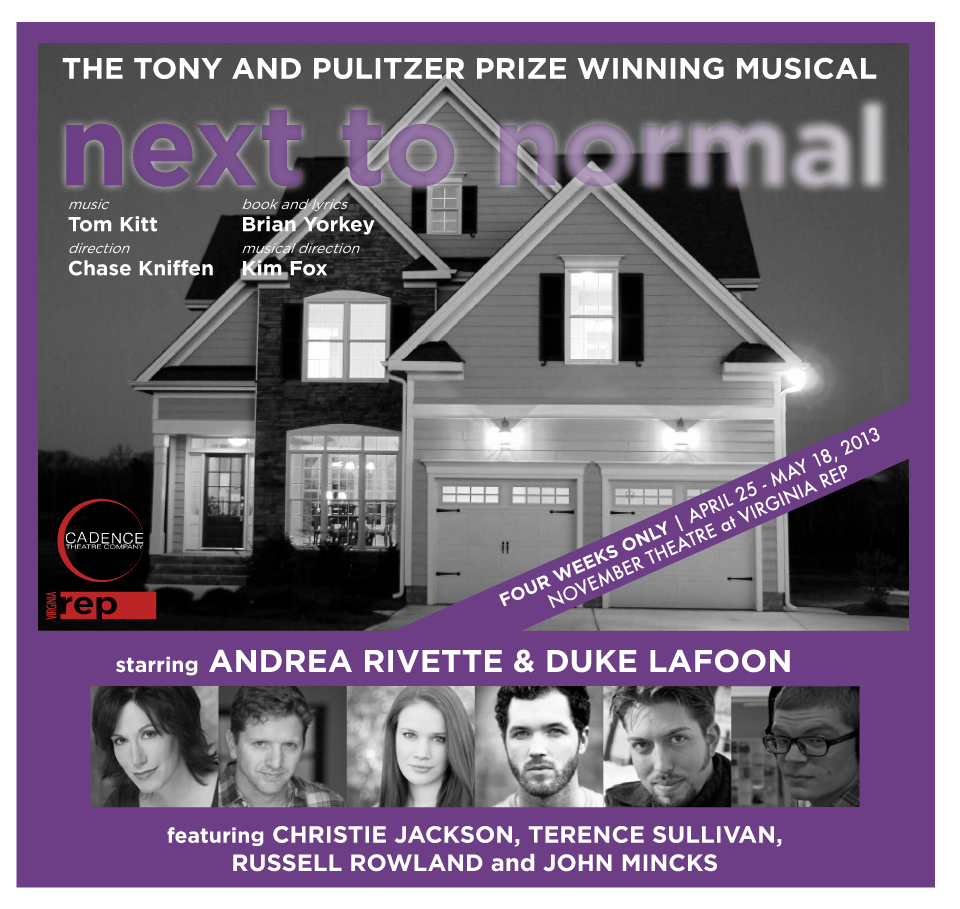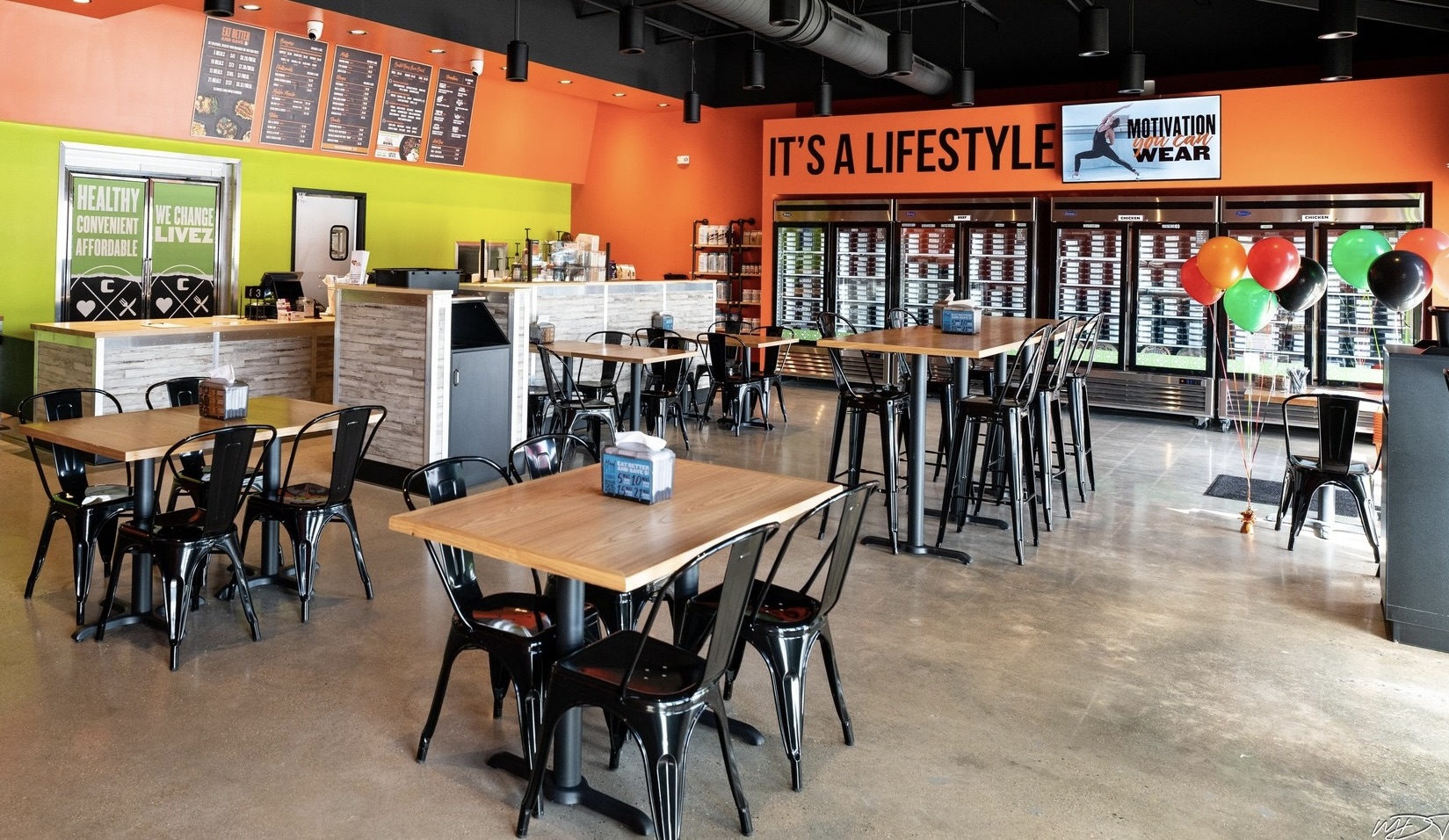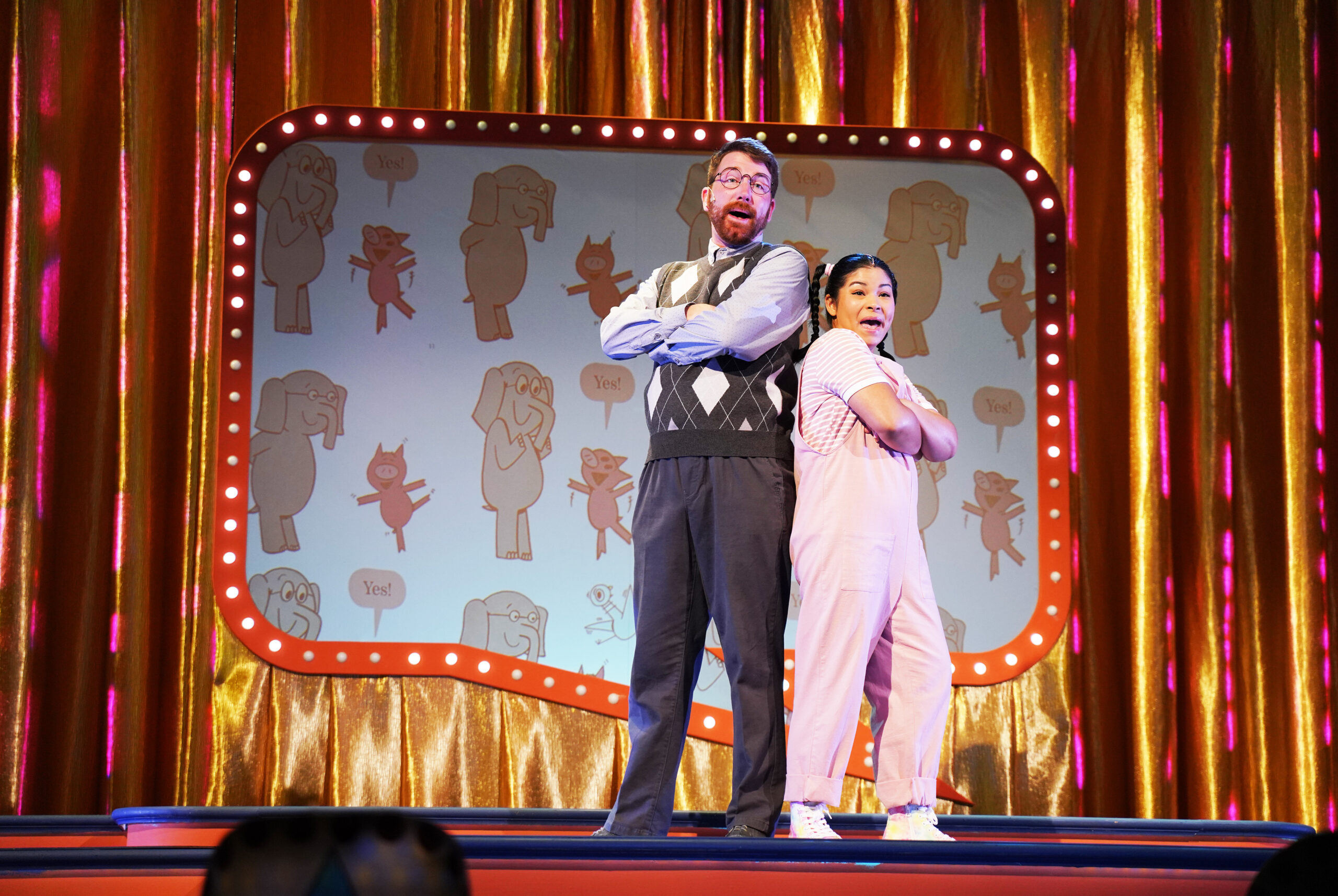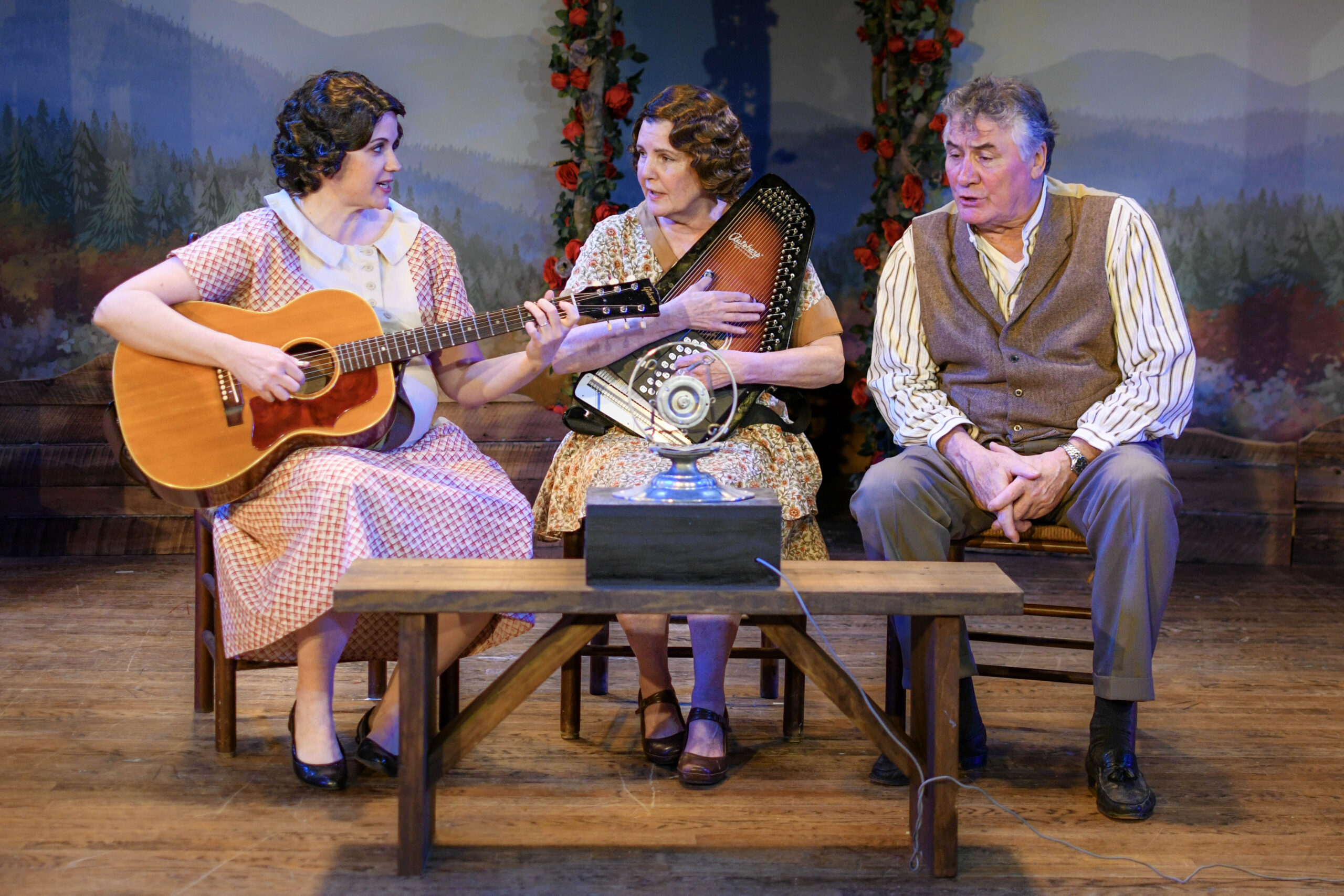Reviewed by Tony Farrell
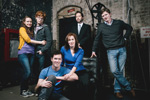 They could be any modern American family—having trouble sleeping, waking up from edgy dreams, shuffling off to work and school each morning with a home-packed lunch and a stomach full of dread.
They could be any modern American family—having trouble sleeping, waking up from edgy dreams, shuffling off to work and school each morning with a home-packed lunch and a stomach full of dread.
But even as we listen to “Just Another Day,” the opening number in Next To Normal, the latest production from Cadence Theatre Company and Virginia Rep now playing at the November Theatre, we sense something else going on here, an off-kilter vibe to the way this day begins.
Man-of-the-house Dan seems normal enough as he heads off to work. Mother Diana registers as harried and brittle but still twenty-first-century familiar. Daughter Natalie surfs the wave of her own high expectations; the pressure she feels to succeed spills out in bursts of profanity.
Then there is son Gabe, last to leave the house and suddenly bathed in shallow light as he shares a moment with his mother. Key Club, football and a handful of other benchmarks will fill his day, he assures her. He kisses her on the cheek—an odd gesture for a boy almost college-age. What to make of this all-too-perfect son?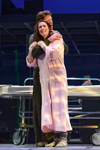
Hard-charging and aimed at mature audiences, Next To Normal – winner of a 2009 Tony Award and 2010 Pulitzer Prize – immediately plunges us into the inner workings of a family living day by day while grappling with the after-effects of tragic loss.
More than a play and too raw to be called simply a musical, Next To Normal takes modern rock-opera structure and shakes it to its foundations by using a monochromatic, multi-level set and a thumping band hidden in the stage’s bulwarks to drive home each character’s creeping mental anguish.
The show revolves around Diana, who early on reveals through words and inexplicable actions a years-long battle with bipolar disorder kicked off by a seminal event early in her married life. Each member of her family tries to make sense of her medical symptoms and vainly lend a hand, but soon Diana seeks a doctor’s help – and an inevitable pharmacological soup – to ease her pain. “You have a chronic illness, like diabetes or hypertension,” the doctor tells his patient. But we soon learn this disease is beyond the reach of drugs or the electroshock therapy Diana eventually endures.
Husband Dan tries to come to terms with the loss he and Diana share and the helplessness he feels, especially as daughter Natalie grieves over the bond with her mother that has been absent down through the years. Soon enough, Natalie finds unlikely romance with classmate Henry, who draws her into the realm of her own sensuality just as Dan is realizing the youthful ardor of his marriage to Diana is fading into the past.
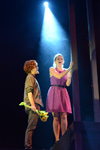 As directed by Chase Kniffen and staged by Brian Barker, Next To Normal presents itself with a hugely ambitious theatrical battle plan. Recognizing that modern life is a stew of problems we often simply stumble through with solutions we only grab at, the show uses unrelenting but effective staging, blocking, choreography and even video to drive home the unhinged – even abstract – way so many families live and cope. Even the lighting, expertly designed by K. Jenna Ferree, keeps frantic pace with the players as they shift through different states of memory, mood, and mental disarray.
As directed by Chase Kniffen and staged by Brian Barker, Next To Normal presents itself with a hugely ambitious theatrical battle plan. Recognizing that modern life is a stew of problems we often simply stumble through with solutions we only grab at, the show uses unrelenting but effective staging, blocking, choreography and even video to drive home the unhinged – even abstract – way so many families live and cope. Even the lighting, expertly designed by K. Jenna Ferree, keeps frantic pace with the players as they shift through different states of memory, mood, and mental disarray.
Fully embracing rock-opera tradition, Next To Normal also offers up nearly forty musical numbers (including reprises) that race from one emotional touchstone to another, continuously rising to a peak one moment and descending quickly into a valley the next. And in the tradition of all great musicals, the songs use intertwining and overlapping lyrics to highlight the conflicting predicaments and insecurities of each character. The musical rhythms even seem to communicate, at certain moments, what bipolar mental disorder must actually feel like.
Still, as my own mom always reminded me, sometimes less is more. And while Next To Normal captures the frantic, clanging rush of a family holding on for dear life, at times you may wish the pace would slow down to let the issues before you breathe a bit. The production aspires to the same high ground of many musicals and rock operas that have come before, such as Tommy, Quadrophenia and Jesus Christ, Superstar. Here, though, the musical carnival and top-of-lung crescendos sometime obscure the somber, serious nature of mental health and the personal pain that inhabits a hopeless soul.
But even if there might be too many songs by half, this production of Next To Normal draws the bulk of its strength from the carefully drawn performances of each member in the excellent cast. Duke Lafoon and Andrea Rivette each bring a seasoned Actors’ Equity pedigree to the roles of Dan and Diana, and Christie Jackson and John Mincks, as Natalie and Henry, are young and fresh enough to nail perfectly the halting, jittery insecurities that are a natural part of high school life. Russell Rowland personifies modern medicine with just the right mix of sympathy and remoteness as Diana’s doctor. And Terence Sullivan, as son Gabe, paints a portrait of lonely helplessness as we come to learn exactly who—and when—he is.
The show concludes with “Light,” an anthem to hope that allows each member of the cast, one by one, to join in a final attempt to “get us back to better than before.” But in the darkness of the November Theatre, there was more than one middle-aged member of the audience quietly sniffling and dabbing tissues to teary eyes.
For Next To Normal reminds us that memory is both the fuel in the tank and the sand in the gears of every family’s humming, churning engine. And even as we make new memories every day, we must face the sober truth that we still lose each other by degrees as we move through life. Marriages cool, kids drift away a year at a time, and chasms between us appear suddenly where none were before. Maybe all the songs in Next To Normal are there to do us a favor. Without them to help carry us to the story’s end, the pain of broken hearts might be simply too much to bear.
Next to Normal, produced by Cadence Theatre Company in partnership with Virginia Rep’s Theatre Gym, runs through May 18 at Virginia Rep’s November Theatre. Purchase tickets at www.va-rep.org or by calling (804) 783-1688.


